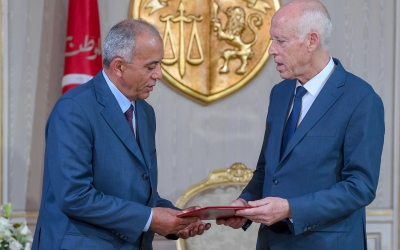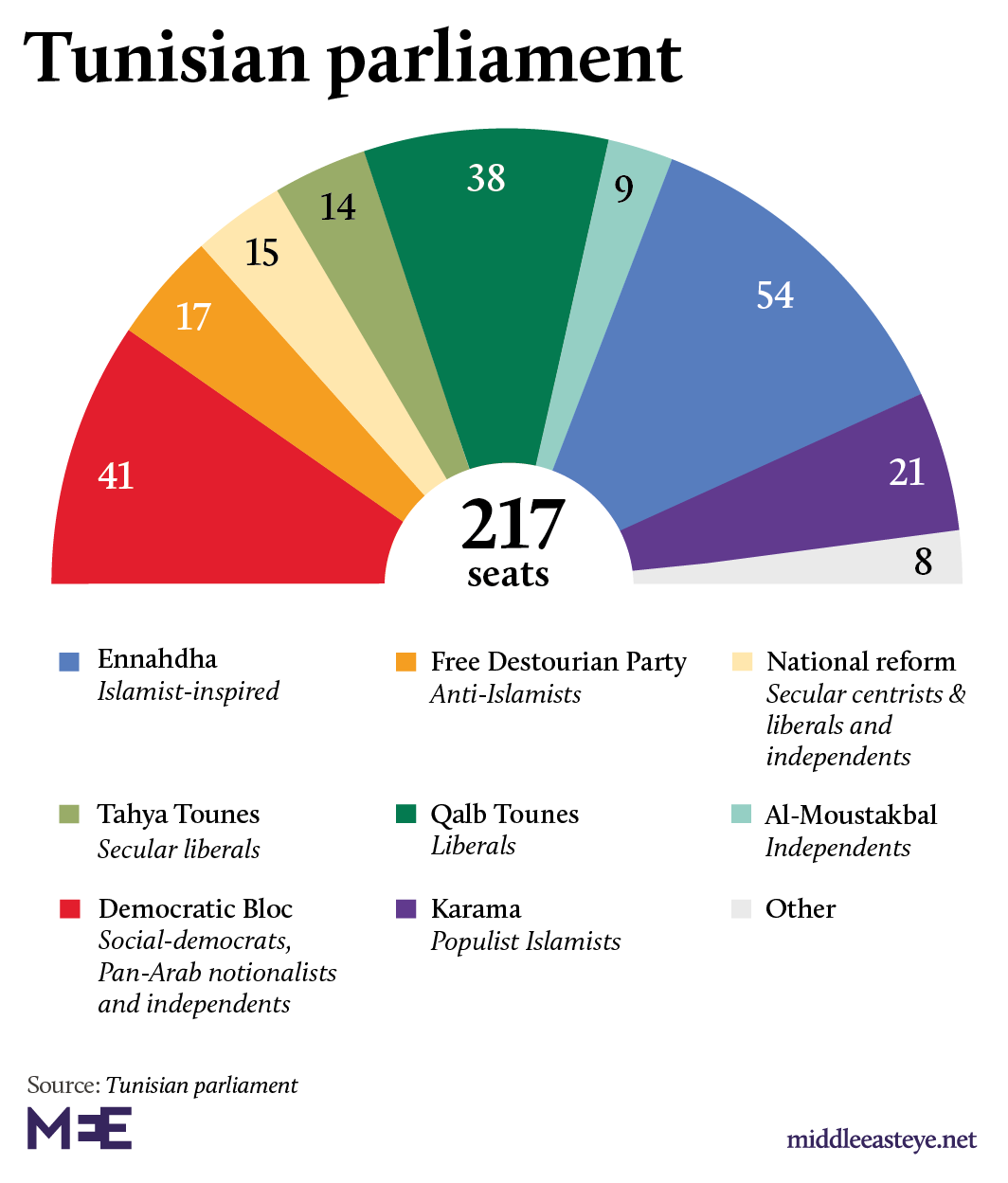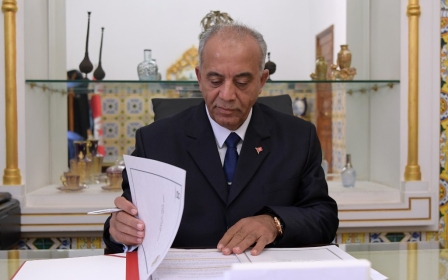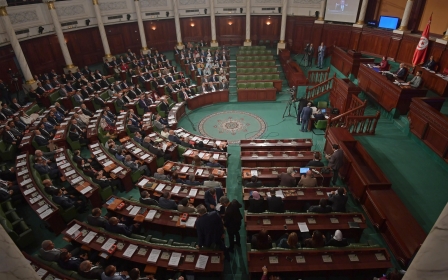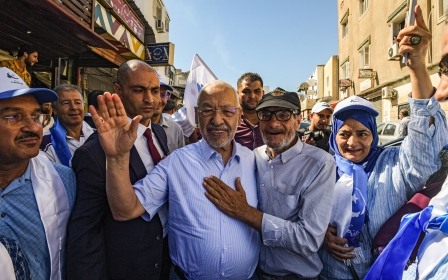Tunisia's parliament to vote on formation of new government
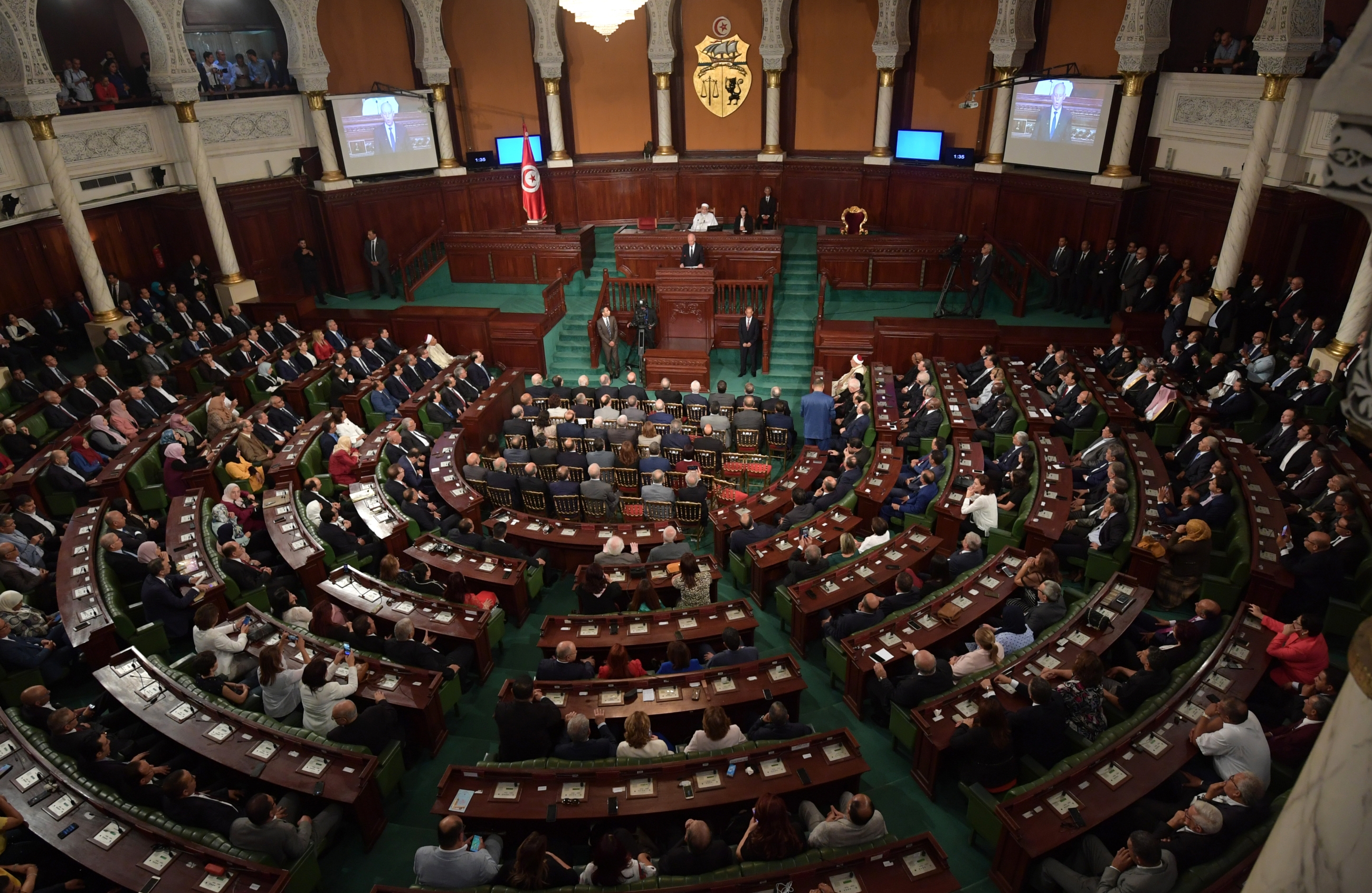
Tunisia's parliament will vote on the formation of a new government made up of political independents and technocrats after President Kais Saied approved a proposed government line-up, his office said on Thursday.
Tunisia's prime minister-designate Habib Jemli tabbed relatively unknown Abderrahmen Khachtali, a former finance ministry official, as finance minister, and Khaled Shili, Tunisia's ambassador to Jordan, as foreign minister.
Imed Darouiche was chosen as defence minister, Soufiene Sliti as interior minister and Hedi Kediri as justice minister. The existing tourism minister, Rene Trabelsi, would stay on in his post.
With unemployment currently sitting at 30 percent in some cities, amid rising inflation and deteriorating public services, reviving the economy is one of the biggest priorities for Jemli's government.
Jemli said in a televised speech that his proposed cabinet would be endorsed by a majority of parliament's 217 members.
Still, analysts said a weak government that does not enjoy much political support may prove unable to resolve the economic problems that have plagued Tunisia since its 2011 revolution.
"It will be very interesting to see if parliament approves this," Max Gallien, a political scientist at the London School of Economics, told Middle East Eye.
"The long time that it took to negotiate this proposed cabinet, the repeated postponements of its announcement and the concerns from the presidency all suggest that this might be a difficult confirmation."
A vote in parliament must now be scheduled by the speaker, Rached Ghannouchi, the head of the moderate Islamist Ennahda party.
Ennahda emerged as the country's strongest political force in Tunisia's October parliamentary elections, winning 52 seats in the fractured parliament.
Middle East Eye propose une couverture et une analyse indépendantes et incomparables du Moyen-Orient, de l’Afrique du Nord et d’autres régions du monde. Pour en savoir plus sur la reprise de ce contenu et les frais qui s’appliquent, veuillez remplir ce formulaire [en anglais]. Pour en savoir plus sur MEE, cliquez ici [en anglais].


